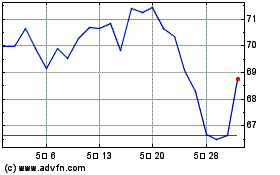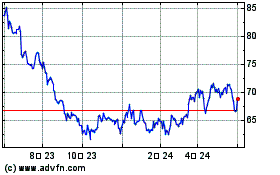NAME OF REGISTRANT: General Mills, Inc.
NAME OF PERSON RELYING ON EXEMPTION: Green
Century Equity Fund
ADDRESS OF PERSON RELYING ON EXEMPTION:
114 State Street, Suite 200, Boston, MA 02109
Written materials are submitted
pursuant to Rule 14a-6(g)(1) promulgated under the Securities Exchange Act of 1934. Submission is not required of this filer under
the terms of the Rule but is made voluntarily in the interest of public disclosure and consideration of these important issues.
Proposal
Number 5 on General Mills, Inc.’s 2024 Proxy Statement:
Plastic
Packaging
General Mills, Inc. Symbol: GIS
Filed
by: Green Century Equity Fund
Green Century Capital Management, Inc. seeks your support for the plastic
packaging related proposal filed at General Mills, Inc. (hereby referred to as “General Mills” or “the Company”)
in the 2024 proxy statement, which asks the Company to increase its sustainable packaging efforts including by reducing its plastic packaging
use. The Proponent believes taking such action would serve the long-term interests of the Company by mitigating potential regulatory,
legal, and reputational risks.
Resolved: Shareholders request that General Mills issue a report,
at reasonable cost and omitting proprietary and privileged information, assessing how the Company can increase the scale, pace, and rigor
of its sustainable packaging efforts including by reducing the use of plastic packaging.
Supporting Statement: Proponents defer to management on the
content of the report, but suggest that a report meaningful to shareholders may include:
| ● | The Company’s assessment of any reliance on “Store Dropoff’ or other consumer actions that do not necessarily lead
to widespread, consistent recycling of the company’s plastic packaging. |
| ● | Annual disclosure of metrics related to the Company’s plastic use, such as reporting on plastic packaging use by weight and
unit and portfolio-wide recycled plastic content use. |
RATIONALE FOR A “YES” VOTE
| 1. | Regulatory risk – General Mills may be unprepared to comply with existing environmental
advertising laws now in effect in California. General Mills may also be unprepared to comply with recent extended producer responsibility
(EPR) and “Truth in Recycling” legislation being implemented and considered in multiple states. |
| 2. | Legal risk – Misleading recyclable labels on plastic packaging pose legal risks to General Mills, with numerous litigation
cases emerging related to false recyclable labels and claims on plastic packaging. Removing misleading labels and shifting resources to
prioritize plastic reduction may reduce legal risk. |
| 3. | Reputational risk – Recent media pieces have called into question the veracity of plastics recycling claims, including
those of General Mills. The Company could mitigate reputational risk by removing misleading recycling labeling and increasing the scale,
pace and rigor of its efforts to reduce plastic use. |
| 4. | Investor expectations – Following a 55% majority shareholder vote on a 2022 proposal requesting
a report on how General Mills could increase the scale, pace, and rigor of its sustainable packaging efforts by reducing its absolute
plastic packaging, the Company has produced no such report. |
This is not a solicitation
of authority to vote your proxy. Please DO NOT send us your proxy card; the Green Century Equity Fund is not able to vote your proxies,
nor does this communication contemplate such an event. The Green Century Equity Fund urges shareholders to vote for Item Number 5
following the instruction provided on the management’s proxy mailing.
BACKGROUND
Plastic pollution is a global systemic risk. Only 5% of all plastic
is recycled in the U.S.,1 with the majority sent either to landfills or released into the environment.2 Plastic
is one of the leading causes of marine wildlife deaths,3 and while the full extent of its impact on human health is unknown,
current levels of microplastic consumption have been found to cause cell death and allergic reactions.4
While all types of plastic can negatively impact the environment, certain
plastics are more problematic than others. For example, plastic film, which General Mills uses to package cereal and other products,5
can damage traditional recycling equipment and therefore is not commonly recyclable.6 While recycling has often been elevated
as the solution to the plastic pollution problem,7 reducing global plastic use is key.8
General Mills disclosed in its 2024 Global Responsibility Report that
plastic made up 11% of packaging by weight.9 While the Company has taken the important first step of committing to increase
plastics-related disclosures in response to the 2022 majority vote, it has neither issued the requested report nor disclosed
systematic approaches, targets or plans to reduce its absolute plastic packaging. Instead, it has doubled down on its ambition
to design 100% of packaging to be recyclable or reusable by 2030, though a significant portion of its plastic packaging labeled as recyclable
is not, in fact, feasibly recyclable.
RATIONALE FOR A “YES” VOTE
General Mills’ heavy emphasis on recyclability at the expense
of absolute plastic reduction measures undermines its ability to mitigate plastics-related financial risks:
As public awareness of the plastic pollution problem grows, many states
are regulating both single-use plastic packaging and misleading recycling labels. General Mills does not currently disclose a public-facing
strategy for reducing its plastic use or for addressing misleading recycling labels, indicating that the Company may not be prepared to
meet new and existing regulatory requirements for plastic packaging.
_____________________________
1 https://www.nrel.gov/news/press/2022/nrel-calculates-lost-value-of-landfilled-plastic-in-us.html
2 https://www.unep.org/interactive/beat-plastic-pollution/
3 https://www.clientearth.org/join-us/plastic-pollution-facts-and-how-to-prevent-it/
4 https://www.theguardian.com/environment/2021/dec/08/microplastics-damage-human-cells-study-plastic
5 https://www.naturevalley.com/recycle4nature
6 https://roguedisposal.com/resources/education/recycling/understanding-why-plastic-film-cant-go-in-the-recycling-cart
7 https://www.npr.org/2020/09/11/897692090/how-big-oil-misled-the-public-into-believing-plastic-would-be-recycled
8 https://wedocs.unep.org/bitstream/handle/20.500.11822/42277/Plastic_pollution.pdf?sequence=3
9 https://globalresponsibility.generalmills.com/HTML1/general_mills-global_responsibility_2024_0054.htm
| ● | In May 2024, Minnesota became the fifth state in the U.S. to establish an EPR program,10 which holds producers
financially responsible for the end-of-life disposal costs of their product packaging.11 In the last year, other states
have begun rulemaking processes, coordinated needs assessments, and selected producer responsibility organizations. Eight states
considered EPR legislation in the 2024 legislative session.12 |
| o | California’s EPR law includes a requirement for producers to reduce plastic use by 25% by 2032.13 Maine has suggested
that producers that wish to minimize their financial obligation associated with the new EPR law should work to reduce the total amount
of packaging they produce.14 |
| ● | California’s existing advertising laws require companies to substantiate recyclability claims on plastic
packaging.15 This law has been the basis for multiple lawsuits against companies on the use of misleading recyclable
labels, including a $10 million settlement class action settlement against Keurig.16 In 2021, California passed
“Truth in Recycling” law (SB343), which further restricts the use of the word “recycle” or any permutation
thereof by the end of 2025.17 |
| o | General Mills cannot provide substantiation for the "Store Drop Off" label on its plastic film packaging, which includes
a recycling symbol, because this program is not collecting sufficient plastic waste material nor recycling the material it receives.18 |
Companies are facing increased litigation over plastic pollution and
recycling claims as lawsuits and media investigations challenge the legitimacy of recycling labels and claims on plastic packaging.
| · | In 2023, the State of Minnesota sued Walmart and Reynolds over
‘recycling’ bags that were not feasibly recyclable. In August 2024, a settlement was announced that prevents Walmart and
Reynolds from selling the bags in question in Minnesota for two and a half years.19 |
| · | In 2023, the State of New York filed a lawsuit against PepsiCo over pollution
from single-use plastic packaging.20 |
| · | A class action lawsuit is progressing against Colgate-Palmolive over
labeling of plastic toothpaste tubes as recyclable.21 |
| · | Misleading recyclable labels on plastic products have spurred successful deceptive
advertising lawsuits against major brands including Keurig22 and eight major product companies.23 |
_____________________________
10 https://www.packworld.com/sustainable-packaging/recycling/article/22910639/minnesota-becomes-5th-state-to-approves-epr-packaging-law
11 https://www.worldwildlife.org/blogs/sustainability-works/posts/what-is-extended-producer-responsibility-epr
12 https://www.perkinscoie.com/en/news-insights/unpacking-packaging-extended-producer-responsibility-laws.html
13 https://www.natlawreview.com/article/california-enacts-epr-law-aimed-single-use-plastic-packaging-and-food-service-ware
14 https://www.maine.gov/dep/waste/recycle/epr.html
15 https://law.justia.com/codes/california/code-bpc/division-7/part-3/chapter-1/article-7/section-17580/
16 https://insideclimatenews.org/news/05062024/lawsuits-targeting-plastic-pollution-pile-up-as-frustrated-citizens-and-states-seek-accountability/
17 https://calrecycle.ca.gov/wcs/recyclinglabels/
18 https://abcnews.go.com/US/put-dozens-trackers-plastic-bags-recycling-trashed/story?id=99509422
19 https://www.startribune.com/walmart-reynolds-settlement-recycle/600608224
20 https://www.cbsnews.com/newyork/news/new-york-pepsi-frito-lay-lawsuit/
21 https://www.reuters.com/legal/government/colgate-palmolive-must-face-lawsuit-over-toothpaste-tube-recycling-claims-2024-02-07/
22 https://www.courthousenews.com/keurig-settles-recyclable-pod-class-action-for-10-million/
23 https://www.wsj.com/articles/terracycle-partners-including-coca-cola-p-g-to-change-recycling-labels-after-settling-lawsuit-11637005586
| · | The Store Dropoff recycling label, which General Mills currently uses, is
not a legal claim in California under SB343, nor in states that have codified the Green Guides.24 At least six states are considering
legislation similar to SB343.25 |
As a consumer food and beverage company, General Mills is highly dependent
on goodwill towards its brand. Recent media articles have emerged calling into question the veracity of plastics recycling claims, presenting
reputational risk. Growing concern about sustainability has the potential to damage the Company’s brand and hurt sales.
| · | Research from Harvard Business School published in 2023 indicates that consumers’
demands for sustainability and trustworthiness are increasing,26 and a 2023 study by McKinsey and NielsonIQ confirmed that
sustainability impacts consumer spending as well as consumer sentiment.27 |
| · | A Bloomberg article from September 2023 shows that General Mills’
Nature Valley Granola Bar wrappers, among other plastic packaging, are not being recycled through “Store Dropoff” but
are instead being landfilled, incinerated, or exported.28 |
| · | ABC's May 2023 investigation highlighted the failure of Store Dropoff systems
to recycle plastic bags and films.29 |
| · | Trackers placed in 93 bundles of Amazon packaging marked for "Store
Dropoff" recycling showed the vast majority of them were buried or burned.30 |
| · | Companies such as Mondelez have recognized these risks and have committed
to removing “Store Dropoff” and “Check Locally” recycling logos by 2025.31 |
| 4. | Failure to meet investor expectations |
Following a 55% majority shareholder vote on a 2022 proposal asking
for a report on how General Mills could increase the scale, pace, and rigor of its sustainable packaging efforts by reducing its absolute
plastic packaging use, the Company has produced no such report, nor has it disclosed systematic approaches,
targets or plans to reduce plastic packaging.
While the Company has laudably committed to expanding
packaging-related disclosures, its core plastics risk mitigation strategy remains focused on recyclability. Such a strategy may be
an inefficient use of corporate resources given that in certain jurisdictions, the definition of
recyclable has or is likely to become much harder to meet.
_____________________________
24 https://www.kirkland.com/publications/article/2023/01/what-cos-can-expect-from-ftcs-green-guides-updates
25 https://www.fastcompany.com/91142181/recycling-symbol-plastic-dirty-truth
26 https://hbr.org/2023/09/research-consumers-sustainability-demands-are-rising
27 https://www.mckinsey.com/industries/consumer-packaged-goods/our-insights/consumers-care-about-sustainability-and-back-it-up-with-their-wallets
28 https://www.bloomberg.com/news/features/2023-09-29/us-store-drop-off-plastic-recycling-often-ends-up-in-landfills?sref=Brs3FVmA
29 https://abcnews.go.com/US/put-dozens-trackers-plastic-bags-recycling-trashed/story?id=99509422
30 https://grist.org/accountability/amazon-says-its-plastic-packaging-can-be-recycled-an-investigation-finds-it-usually-isnt/
31 https://www.mondelezinternational.com/snacking-made-right/esg-topics/recyclability-communication/
As indicated by the majority shareholder vote in 2022 on this topic,
investors expect the Company to meaningfully assess and report on how it can increase sustainable packaging
efforts by reducing plastic packaging.
CONCLUSION
Plastic pollution is a rising concern among consumers,
legislators, and investors. Ultimately, General Mills may face material financial risk due to its existing approach to plastic
packaging sustainability, which is unduly reliant on recyclability rather than reduction. Plastics-related regulatory, legal, and
reputational risks may be mitigated by developing a packaging sustainability plan that emphasizes plastic reduction, scaling up of
reuse programs, and use of materials that are feasibly recycled.
Shareholders are urged to vote FOR the proposal asking General Mills
to increase its sustainable packaging efforts including by reducing its plastic packaging use.
For questions regarding this proposal, please contact Annie Sanders,
Green Century Capital Management, asanders@greencentury.com.
This is not a solicitation
of authority to vote your proxy. Please DO NOT send us your proxy card; the Green Century Equity Fund is not able to vote your proxies,
nor does this communication contemplate such an event. The Green Century Equity Fund urges shareholders to vote for Item Number 5
following the instruction provided on the management’s proxy mailing.
General Mills (NYSE:GIS)
과거 데이터 주식 차트
부터 8월(8) 2024 으로 9월(9) 2024

General Mills (NYSE:GIS)
과거 데이터 주식 차트
부터 9월(9) 2023 으로 9월(9) 2024
